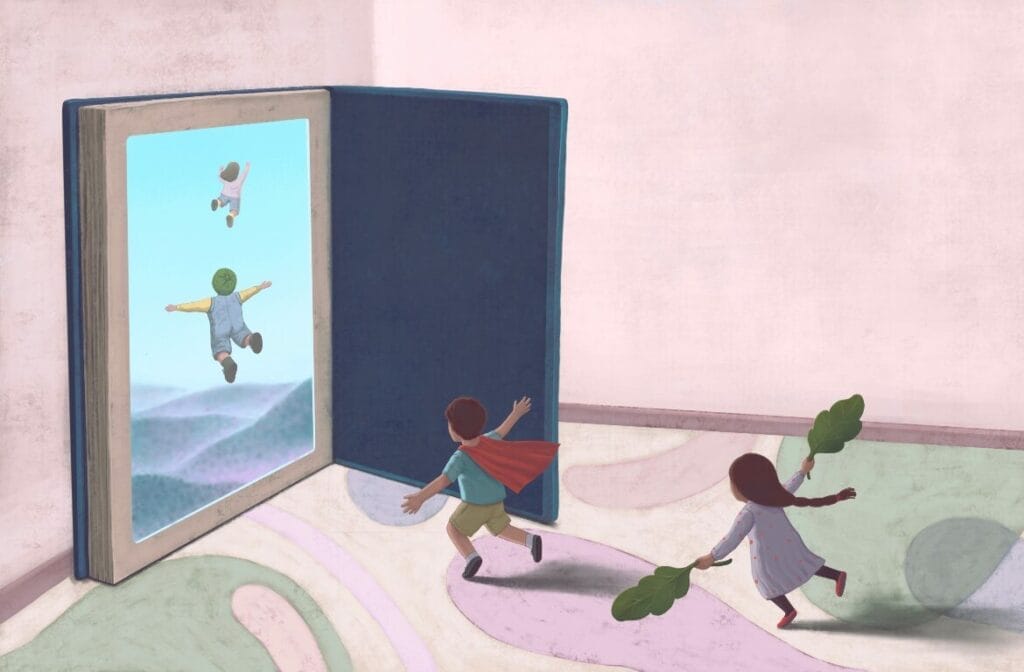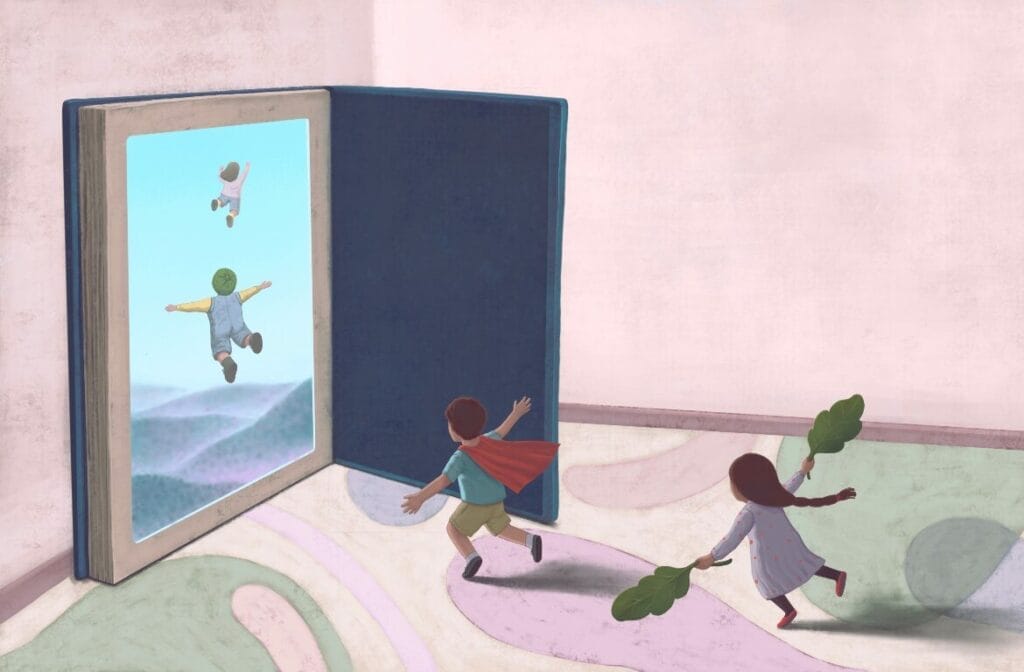This post originally appeared at https://www.badgerinstitute.org/your-job-will-help-your-neighbors-kid-flourish/
Milwaukee’s low-income white children heading in wrong direction
Another national story uses Milwaukee as the cautionary example: Last week, the Wall Street Journal reported on a new study comparing how life turned out for kids born in 1978 and in 1992 — and singled out Milwaukee County as a place where economic mobility fell sharply.
But the study points to a cause, which in turn suggests a cure.

The study from superstar Harvard economist Raj Chetty and colleagues continues his work on American opportunity. The study was able to distinguish children by their parents’ income, then track their earnings at age 27: Does the child rise above his parents’ place on the income ladder? That’s mobility. Does a child born in 1992 do better or worse at age 27 than one born in 1978? That measures whether mobility is rising or falling.
Some people saw mobility rise. African-American kids from Milwaukee County born to low-income families in 1992, for instance, saw incomes 6% above their 1978 predecessors, with bigger increases elsewhere: 9% in Waukesha, 13% in Dane, 12% in Rock, 31% in Racine. White kids from “high income” families — parents earning more than three-fourths of other such families — improved, too, though not nearly as much.
Researchers singled out Milwaukee, however, for how white kids growing up in “low income” families — parents at the 25th percentile, earning less than three-fourths of other such families — did. Between the 1978 and 1992 cohorts, even after adjusting for inflation, their adult earnings worsened by 11%. In nearly every other Wisconsin county for which researchers had data, children from white low-income families saw their prospects worsen, but Milwaukee County stands out.
Neighborhood effects
It’s not just Wisconsin: Chetty and his colleagues found the same pattern nationwide — improvements for black children and for white children from high-income families, worsened prospects for low-income white children.
Why? Geography, researchers found. Diminished prospects “resulted from changes within the neighborhood where children grew up rather than individual family characteristics,” they wrote. Children’s futures dimmed in places where employment fell among adults other than their parents but like their parents in race and class.
In Milwaukee County, for instance, the share of parents of low-income white children who were employed fell from 69% for kids born in 1978 to 56% for those born in 1992. It isn’t just about parents’ resources, Chetty told the newspaper, but what other adults are doing: “If those employment rates are higher, the kids who grew up in those environments do better in the long run,” he said.
“I’m not surprised by that,” said Badger Institute visiting fellow Angela Rachidi, a nationally known scholar on poverty. It’s long been known that “there are all these social benefits to work,” she said. The innovation of Chetty’s study is using tax data to prove those effects on neighbors.
As Rachidi pointed out in the Badger Institute’s 2020 “Mandate for Madison,” while nearly a third of working-age Wisconsin families in which no adult works are poor, only 2% of those in which at least one adult has a full-time job are. Such an anti-poverty effect within families is well established.
But holding a job not only means money, it forms social skills — reliability, communication — “things that make you a better parent, a better neighbor,” said Rachidi.
Expecting work is good
She notes that Chetty is careful to say employment may be a proxy for related factors also strongly correlated with mobility, such as marriage. And the ability to show up on time and work with others helps in finding a job, she noted, “but it’s clear it goes both ways.” Employment hones those skills. It helps form people — including, as Chetty’s study suggests, the neighbors’ kids.
If Wisconsin policymakers want to improve children’s futures, then, the takeaway seems clear: “This is just another piece of evidence,” said Rachidi, “that expecting work, instilling that value in public policies, is good.”
Not everyone agrees. When members of Congress proposed enforcing existing law that requires able-bodied childless adults on food stamps to at least look for work, the idea was treated as unduly strict. The very idea that work is good has been under fire for years on the radical left, where it seems to be seen as punishment.
Meanwhile, Wisconsinites are taking initiative to connect others with work. Efforts such as The Joseph Project and Partners in Hope are among those aimed at former inmates, for example. Rachidi says such private nonprofit efforts are freer than government to make salutary demands. “It probably is more useful than government efforts,” she said, “because they can hold individuals accountable.”
There is no reason, however, that Wisconsinites can’t expect their generous government aid for the poor to include such an expectation of work — especially as it becomes clear that children’s futures seem to depend on whether they see work as the normal thing adults do.
Patrick McIlheran is the Director of Policy at the Badger Institute. Permission to reprint is granted as long as the author and Badger Institute are properly cited.
Submit a comment
“*” indicates required fields
/* = 0;if(!is_postback){return;}var form_content = jQuery(this).contents().find(‘#gform_wrapper_21’);var is_confirmation = jQuery(this).contents().find(‘#gform_confirmation_wrapper_21’).length > 0;var is_redirect = contents.indexOf(‘gformRedirect(){‘) >= 0;var is_form = form_content.length > 0 && ! is_redirect && ! is_confirmation;var mt = parseInt(jQuery(‘html’).css(‘margin-top’), 10) + parseInt(jQuery(‘body’).css(‘margin-top’), 10) + 100;if(is_form){jQuery(‘#gform_wrapper_21’).html(form_content.html());if(form_content.hasClass(‘gform_validation_error’)){jQuery(‘#gform_wrapper_21’).addClass(‘gform_validation_error’);} else {jQuery(‘#gform_wrapper_21’).removeClass(‘gform_validation_error’);}setTimeout( function() { /* delay the scroll by 50 milliseconds to fix a bug in chrome */ jQuery(document).scrollTop(jQuery(‘#gform_wrapper_21’).offset().top – mt); }, 50 );if(window[‘gformInitDatepicker’]) {gformInitDatepicker();}if(window[‘gformInitPriceFields’]) {gformInitPriceFields();}var current_page = jQuery(‘#gform_source_page_number_21’).val();gformInitSpinner( 21, ‘https://e74sq7k37a8.exactdn.com/wp-content/plugins/gravityforms/images/spinner.svg’, true );jQuery(document).trigger(‘gform_page_loaded’, [21, current_page]);window[‘gf_submitting_21’] = false;}else if(!is_redirect){var confirmation_content = jQuery(this).contents().find(‘.GF_AJAX_POSTBACK’).html();if(!confirmation_content){confirmation_content = contents;}jQuery(‘#gform_wrapper_21’).replaceWith(confirmation_content);jQuery(document).scrollTop(jQuery(‘#gf_21’).offset().top – mt);jQuery(document).trigger(‘gform_confirmation_loaded’, [21]);window[‘gf_submitting_21’] = false;wp.a11y.speak(jQuery(‘#gform_confirmation_message_21’).text());}else{jQuery(‘#gform_21’).append(contents);if(window[‘gformRedirect’]) {gformRedirect();}}jQuery(document).trigger(“gform_pre_post_render”, [{ formId: “21”, currentPage: “current_page”, abort: function() { this.preventDefault(); } }]); if (event && event.defaultPrevented) { return; } const gformWrapperDiv = document.getElementById( “gform_wrapper_21” ); if ( gformWrapperDiv ) { const visibilitySpan = document.createElement( “span” ); visibilitySpan.id = “gform_visibility_test_21”; gformWrapperDiv.insertAdjacentElement( “afterend”, visibilitySpan ); } const visibilityTestDiv = document.getElementById( “gform_visibility_test_21” ); let postRenderFired = false; function triggerPostRender() { if ( postRenderFired ) { return; } postRenderFired = true; jQuery( document ).trigger( ‘gform_post_render’, [21, current_page] ); gform.utils.trigger( { event: ‘gform/postRender’, native: false, data: { formId: 21, currentPage: current_page } } ); if ( visibilityTestDiv ) { visibilityTestDiv.parentNode.removeChild( visibilityTestDiv ); } } function debounce( func, wait, immediate ) { var timeout; return function() { var context = this, args = arguments; var later = function() { timeout = null; if ( !immediate ) func.apply( context, args ); }; var callNow = immediate && !timeout; clearTimeout( timeout ); timeout = setTimeout( later, wait ); if ( callNow ) func.apply( context, args ); }; } const debouncedTriggerPostRender = debounce( function() { triggerPostRender(); }, 200 ); if ( visibilityTestDiv && visibilityTestDiv.offsetParent === null ) { const observer = new MutationObserver( ( mutations ) => { mutations.forEach( ( mutation ) => { if ( mutation.type === ‘attributes’ && visibilityTestDiv.offsetParent !== null ) { debouncedTriggerPostRender(); observer.disconnect(); } }); }); observer.observe( document.body, { attributes: true, childList: false, subtree: true, attributeFilter: [ ‘style’, ‘class’ ], }); } else { triggerPostRender(); } } );} );
/* ]]> */
The post Your job will help your neighbor’s kid flourish appeared first on Badger Institute.
